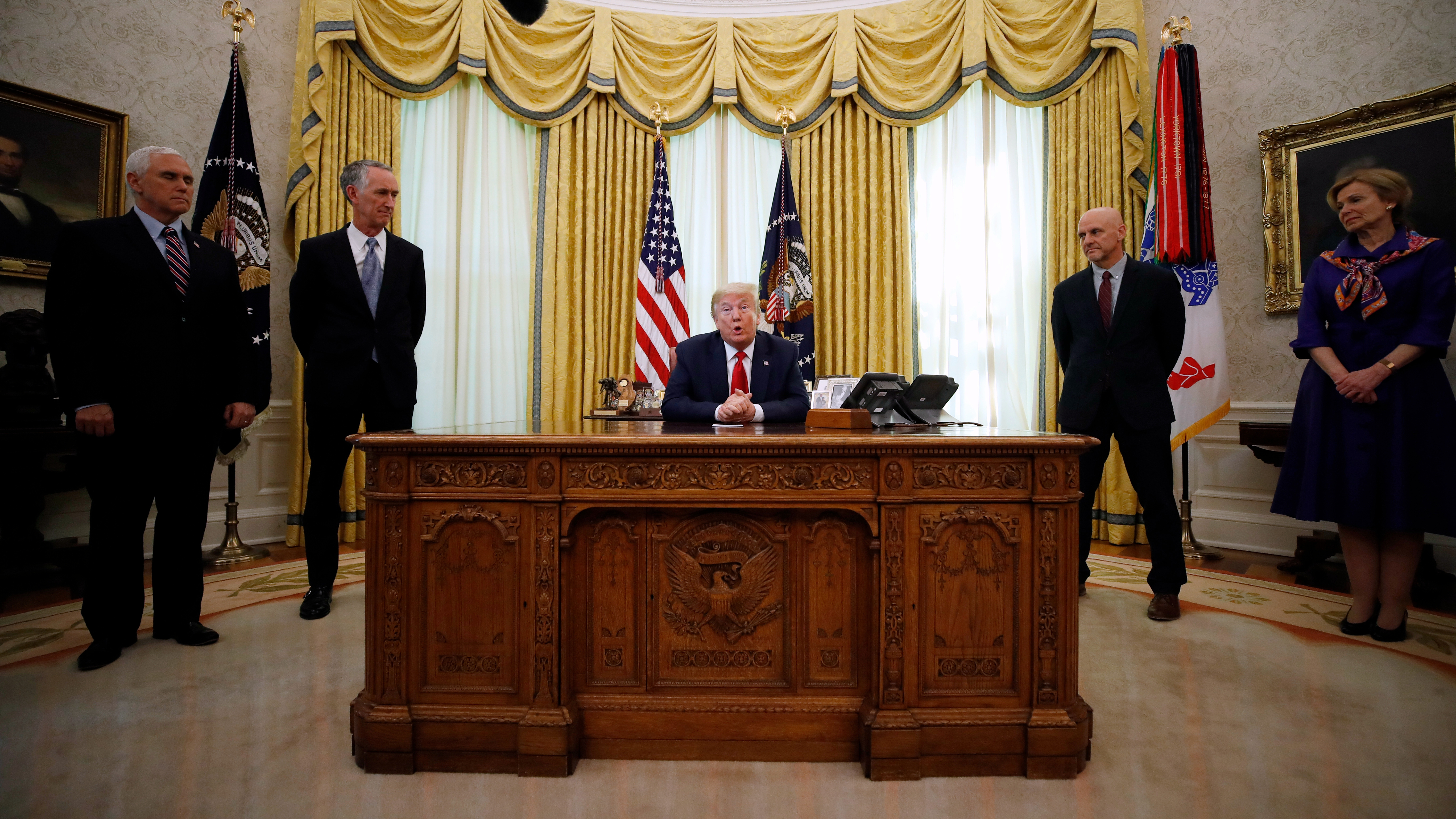
Editor's note: Andrew Korybko is a Moscow-based American political analyst. The article reflects the author's opinion, and not necessarily the views of CGTN.
The U.S. information warfare campaign against China has drastically intensified after an American government report accused China of covering up the severity of its COVID-19 outbreak. It was entirely predictable that the U.S.-weaponized narrative would eventually reach that extreme, but what's less widely understood is the reason why it's doing all of this in the first place. It's true that the country wants to distract from its failure in properly defending itself from the virus, but there might be a lot more to it than just that.
Secretary of State Pompeo spoke last week about the U.S. plans to shift supply chains away from China, specifically mentioning how it intends to cooperate with Australia, India, Japan, New Zealand, the Republic of Korea, and Vietnam to that end. This group of countries can be described as the Quad+ since it includes that framework's traditional American, Australian, Indian, and Japanese members alongside their three very close partners of New Zealand, the Republic of Korea, and Vietnam.
A report from Reuters on Monday added some additional insight into the role that the U.S. envisages the Quad+ playing vis-a-vis China. Titled "Trump administration pushing to rip global supply chains from China: officials", the piece quotes an unnamed official who spoke about America's plans to create a so-called "Economic Prosperity Network," which the outlet connected to Pompeo's aforementioned speech highlighting the six countries that the U.S. intends to work most closely with when it comes to restructuring global supply chains.

People wearing face masks wait outside a beauty salon and check cashing facility as COVID-19 continues to spread, Detroit, Michigan, the U.S., April 25, 2020. /Reuters
People wearing face masks wait outside a beauty salon and check cashing facility as COVID-19 continues to spread, Detroit, Michigan, the U.S., April 25, 2020. /Reuters
With this in mind, the U.S. information warfare campaign against China takes on an entirely new meaning. Instead of just being an attempt to distract the public from the Trump administration's failure to properly defend Americans from COVID-19 despite having had approximately a quarter of a year to do so since China informed the world about this danger at the end of last year, it can now be understood through the prism of "justifying" the creation of the "Economic Prosperity Network" and giving it an urgent impetus.
To explain, China's central role in the pre-coronavirus global supply chains was a natural development that followed the logic of globalization. The laws of economics strongly suggest that this will remain unchanged even after the pandemic ends for that very same reason, unless of course there's political interference to change that trajectory. The U.S. is attempting to do just that through its anti-Chinese information warfare campaign that's intended to manufacture the basis upon which it and others can demand "reparations."
It's unrealistic to expect China to behave like the losers of the two world wars from the last century by shelling out billions of dollars' worth of compensation when it hasn't been defeated in any conflict nor has any moral reason to do so after also suffering just like everyone else did from COVID-19. Rather, the purpose of pushing these demands is to subsequently use them as the "justification" for imposing more tariffs, first by the U.S. and then afterwards by its partners. These can in turn make it more costly for them to continue trading with China.
The intended cumulative effect of doing so is to restructure global supply chains away from China and towards the countries of the "Economic Prosperity Network" by manipulating the laws of economics through the U.S. political interference that's being portrayed as a "response" to the conspiracy theory alleging that China covered up the severity of its COVID-19 outbreak. In other words, the anti-Chinese infowar is actually driven by long-term economic interests, not just reactionary rhetoric to distract the masses.
That said, it'll be extremely difficult for the U.S. to establish its "Economic Prosperity Network" since it arguably involves much more risk than simply keeping things the way they are after the pandemic ends. The number of moving parts associated with this plan on both the government and private sector levels is intimidating and means that it's a lot easier for everything to go wrong than to succeed. As such, this strategy seems to be more of a grandiose delusion by the American president than any feasible plan, increasing the chances that it'll fail.
(If you want to contribute and have specific expertise, please contact us at opinions@cgtn.com.)